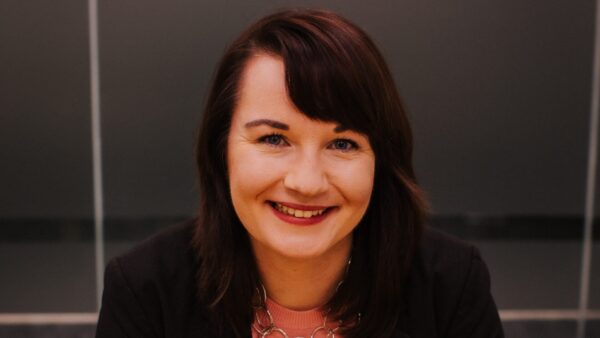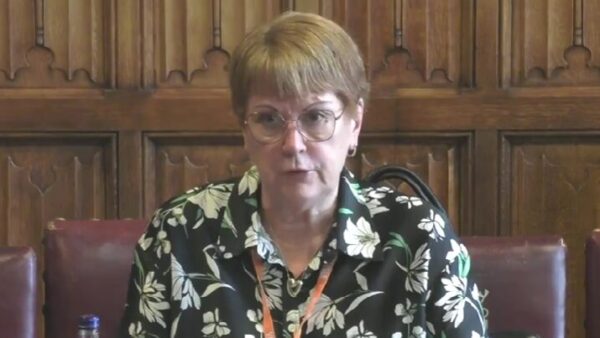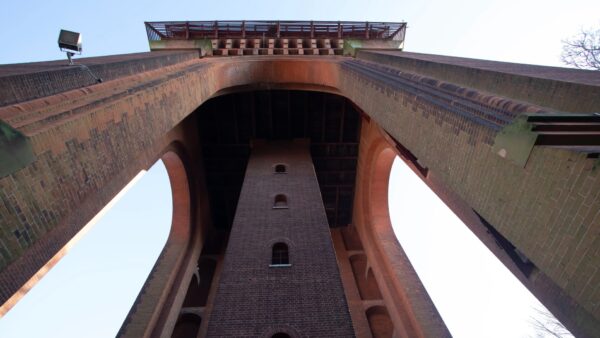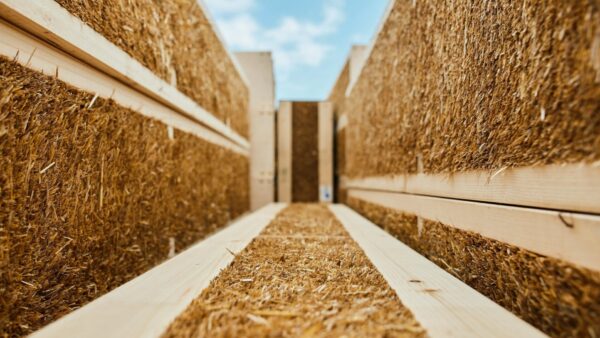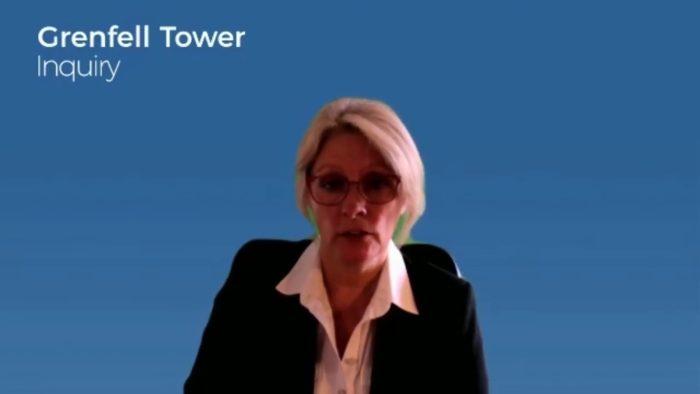
The UK sales manager for Arconic, the firm that supplied the Reynobond ACM 55 PE cladding used on Grenfell Tower, did not discuss the combustibility of the products she was marketing with clients, the Grenfell Tower Inquiry has heard.
Deborah French, who worked for Arconic between 2007 and 2014, said that despite the fact Arconic sold ACM cladding with both a polyethylene core (PE) of the type used on Grenfell, and a fire-resistant (FR) core, it was “not something that was ever discussed”.
She told the Inquiry: “These conversations about fire were just not something that never [sic] happened. They weren’t part of everyday discussions.”
French’s response came after lead counsel to the Inquiry Richard Millett asked her about a query from Arup regarding the combustibility of the two different types of cores, in relation to a project it was working on overseas.
In a September 2011 email, an Arup employee asked French for technical details about the FR core and how it compared to the FE core.
French had documents showing details about the two different cores, but unsure if she was allowed to send them to Arup, she asked her France-based superior Claude Wehrle.
On 23 September, Wehrle replied: “OH MY LORD!!! For sure you’re NOT allowed to diffuse to the customer those documents. The best way to answer is to speak about difference of fire classification on the panels containing FR compared to those ones containing PE.”
Wehrle went on to explain that the FR core contained 30% organic material and 70% material and therefore burned less readily than the PE core which was “only organic”.
Millet asked French: “Do you accept that at this stage, September 2011, you knew, even if only from this exchange, that there was a different fire classification for FR from that which applied to PE?”
French replied that she did.
Millett asked: “If you had to have this explained to you by Claude Wehrle, wouldn’t it follow that your own customers would need to have it explained to them in turn?”
French replied: “Yes they would have done.” However, she said she could not recall explaining to customers “specifically” that PE would burn.
Asked if she felt it was important to explain, she said: “If I’d been asked the question, I would have explained it, or I would have sought the right information to go and be able to explain it to them.” She later added: “It’s not something that I was asked, it’s not something that I would have talked to them about. I certainly wouldn’t have felt comfortable doing that. As I say, I haven’t got the technical knowledge to be able to do that.”
Price difference
French confirmed to the Inquiry that there was a price difference between Reynobond cladding with a PE core and Reynobond with an FR core. She said the PE-cored product was competitively priced “but not in all cases” and that the firm was “probably more expensive on FR”.
French explained that she had general guidance from Europe on pricing that Arconic could or couldn’t offer on its products. She explained: “I had a level that I could sell to without having to go to Merxheim [the base of Arconic Architectural Products in France], and other prices I would have to seek that from or at least get some sort of agreement from Merxheim.”
Millett asked French if Arconic had any price advantage to the competition if it sold PE core as opposed to FR core, to which French replied: “No.”
French director of Arconic to give evidence
Meanwhile, the Inquiry heard that Claude Schmidt, managing director of Arconic Architectural Products in France has now agreed to give oral evidence.
Schmidt was one of a number of Arconic witnesses called to the Inquiry who had declined to appear on legal advice that to do so could break French law.
They cited the French Blocking Statute (FBS), which prohibits individuals giving information about French companies in foreign judicial or administrative proceedings, and said they feared that to appear before the Inquiry could lead to their prosecution in France.
There were negotiations between the British and French governments to see whether an international agreement could be reached to give assurance to Arconic witnesses that they would not be prosecuted. In December 2020 a “note verbale” from the French government said it was of the opinion that the Inquiry does not fall within the scope of the FBS, however, it did not go as far as offering Arconic’s witnesses immunity from prosecution.
Schmidt has since agreed to give evidence unconditionally through an interpreter.
However, three other witnesses are still refusing to appear and cannot be compelled to do so. They are: Claude Wehrle, former head of the technical sales support team; Peter Froehlich, former product manager for Reynobond, who resides in Germany; and Gwenaelle Derrendinger, former inside sales assistant at Arconic Architectural Products.
Speaking to the Inquiry about the situation, Millett said: “The Inquiry’s position is that the refusal of these witnesses to come and give evidence is unreasonable.”
But he added that what he said is contested by Arconic, which says it is unfair that it has no opportunity to make submissions about the situation at this stage.
The Inquiry continues.



